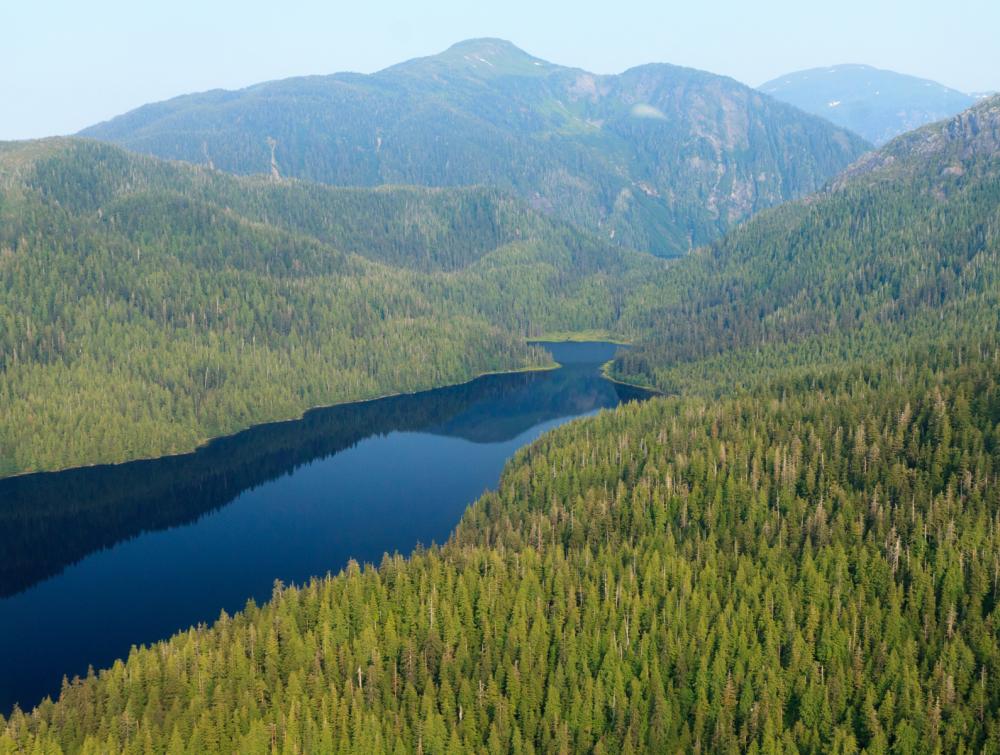The Wilderness Society supports recognition and compensation for five Southeast Alaska Native communities

Tongass National Forest, Alaska
Alan Wu, Flickr
CONTACT: Chelsi Moy, (406) 240-3013, chelsi_moy@tws.org
ANCHORAGE, ALASKA (November 15, 2023) – The Wilderness Society today announced its support for a bill sponsored by Sen. Lisa Murkowski that is known as the Unrecognized Southeast Alaska Native Communities Recognition and Compensation Act (S. 1889). The legislation would allow five communities omitted from the Alaska Native Claims Settlement Act to receive settlement land and form corporations, as hundreds of other Indigenous communities across the state did when ANCSA was passed in 1971.
“This is a long overdue shift in The Wilderness Society’s position and is a significant step toward correcting injustices against Alaska Native communities in Haines, Ketchikan, Petersburg, Tenakee Springs and Wrangell,” said Karlin Itchoak, The Wilderness Society’s senior regional director for Alaska.
The Wilderness Society has a long history of advocating for the conservation and protection of our country’s greatest landscapes, including Alaska’s Tongass National Forest. Our advocacy over time has evolved to include prioritizing tribal sovereignty and taking steps to acknowledge and reconcile past injustices.
While The Wilderness Society’s defense of the Tongass continues, we must correct the injustices faced by these five Indigenous communities in Southeast Alaska. We acknowledge that the Tongass is the ancestral homelands of the Indigenous Tlingit, Haida, and Tsimshian peoples. We acknowledge and respect that five Alaska Native communities were wrongfully excluded from ANCSA, and we must, at a minimum, support efforts to correct this wrongdoing. As a result, we support S. 1889.
We must also ensure that these communities receive necessary startup funding to avoid forcing the corporations to rely on extractive industries to fund their startup costs and attempt to compensate them for the decades of earning potential these five communities were denied for the past 50 years.
“The fight to amend this act and reunite these communities with their ancestral lands is not just about rectifying a historical wrong, but also about ensuring these communities' cultural survival and prosperity,” said Meda DeWitt, who is Naanya.aayí Tlingit from Wrangell, Alaska, and the TWS Senior Specialist for Alaska. “Losing access to our lands means losing a piece of ourselves. Our ancestors have lived off this land for generations, respecting the inherent sentience and intimately understanding its rhythms. By supporting this cause, we are not just advocating for land rights; we are standing in solidarity for the preservation of the Indigenous culture, traditions, and ways of life.”
We apologize to the affected Alaska Native communities for the hurt our past opposition has caused. We will continue to center our Alaska Native partners in our work and reflect on how we can better support them. We trust in these five Indigenous communities to continue to steward this land as they have since time immemorial through their newly formed corporations, and we hope The Wilderness Society can continue to build trust with our Alaska Native partners, both in Alaska and across the country.
The Wilderness Society is the leading conservation organization uniting people to care for America’s wild places. Founded in 1935, and now with more than one million members and supporters, The Wilderness Society has led the effort to permanently protect 111 million acres of wilderness and to ensure sound management of our shared national lands. www.wilderness.org
